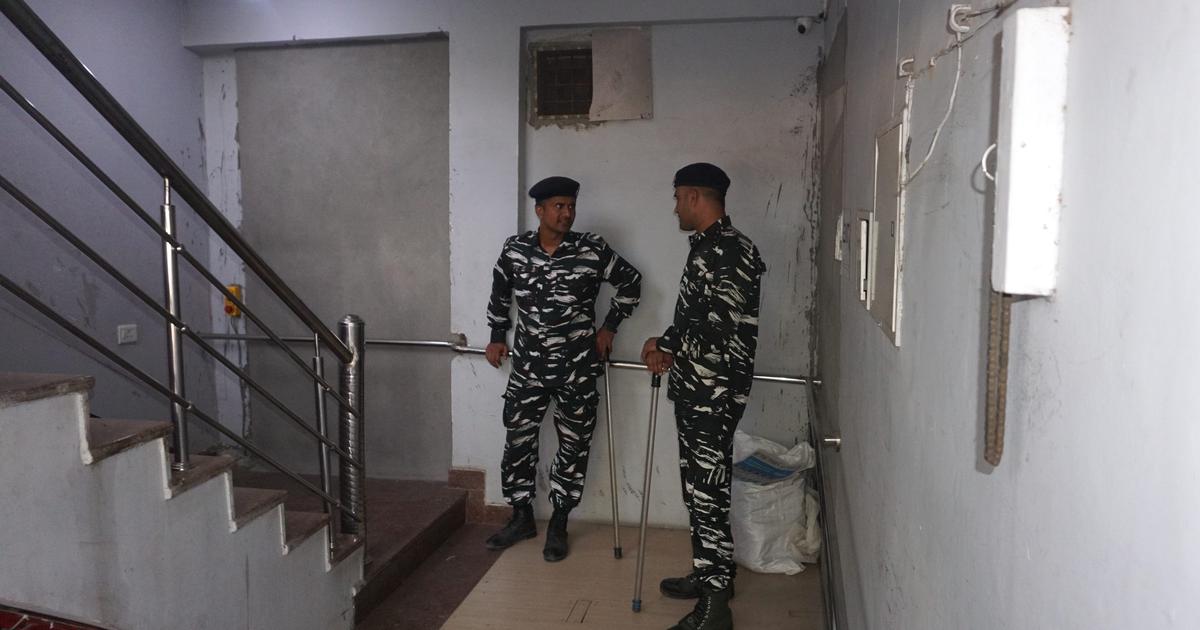
By K Raveendran
The use of terrorist laws against journalists in the NewsClick makes the Narendra Modi government’s intentions very clear: terrorise independent media outfits which dare not to follow their ‘gaudi’ counterparts that dominate the country’s media scene. The government apparently feels that even the few that remain outside its orbit cannot be allowed to operate, given that new threats in the form of a caste re-assertion as well as the emergence of a more unified opposition under the INDIA bloc have made its position look increasingly vulnerable in terms of the upcoming elections.
The case against NewsClick, pending since 2021, has primarily been about alleged money laundering and was being pursued under the prevention of money laundering Act (PMLA). The charges included overvaluing of shares, diversion of funds and violation of foreign direct investment (FDI) regulations. The portal and founder Prabir Purkayastha had even secured a Delhi high court order restraining Enforcement Directorate from ‘coercive action’ against them. But in August this year, ED moved the high court to vacate its earlier order offering protection to the accused. The court is yet to pronounce its verdict on NewsClick’s plea to quash an Economic Offences Wing criminal case against the portal. But the government has now slapped terrorism charges against not only the organisation but its functionaries as well.
The swiftness and drama of the raids make it clear that the idea is to intimidate. Searches were conducted at 30 locations, including the shared residences of staff, and computers and mobile phones seized. The raids were reminiscent of action against outlawed terror outfits such as ISIS and most recently the PFI. The charges are also similar: treason.
The raids fall into a perfect pattern ever since Modi assumed office in 2014. In February this year, raids were conducted on the premises of BBC in the wake of the release of a documentary which was critical of the prime minister. Similar actions have been taken against other media units critical of the Modi government, such as The Quint and The Wire. In 2021, income tax officials launched an investigation into the affairs of the Dainik Bhaskar, one of the leading and influential newspaper groups in the country, for criticising the pitfalls in the government’s handling of the Covid pandemic.
The use of enforcement and investigating agencies to settle score has not escaped the attention of the judiciary, which has of late been increasingly vocal about the problem. A three-member bench of the Supreme Court is set to examine the whole gamut of issues raised by critics about the abuse of central agencies. It may not be just coincidence that the Supreme Court has expressed itself quite unequivocally against such abuse, providing insights as to how the court plans to approach the problem in the days to come.
Even as Purkayastha and his HR manager are undergoing interrogation in ED’s custody, the agency has been at the receiving end of the Supreme Court rebuke after it cancelled two similar arrests in a money-laundering case. The court said the Enforcement Directorate cannot behave in a vindictive manner and must be seen to act with the highest degree of fairness.
“Every action of the ED is expected to be transparent, above board and conforming to pristine standards of fair play in action,” the Supreme Court said in its judgment a case in which Basant Bansal and Pankaj Bansal, directors of Gurugram-based realty group M3M, had approached the court against a Punjab and Haryana High Court order which dismissed their request for bail in June.
The court observed that that in this case, the facts demonstrated that the probe agency ‘failed to discharge its functions and exercise its powers’. “ED is not expected to be vindictive in its conduct and must be seen to be acting with utmost probity and with the highest degree of dispassion and fairness,” said the judges. The failure of the accused to respond to questions put to them could not be sufficient grounds for arrest by the Enforcement Directorate, they added.
The judges observed that ED had to specifically find reason to believe that the accused are guilty of an offence under the Prevention of Money Laundering Act and mere non-cooperation in response to the summons would not be enough to arrest anyone. “It is not open to the ED to expect an admission of guilt from the person summoned for interrogation,” the court asserted. (IPA Service)
The post Centre’s Raids On Newsclick Is A Part Of Policy Of Intimidation Of Independent Media first appeared on Latest India news, analysis and reports on IPA Newspack.


